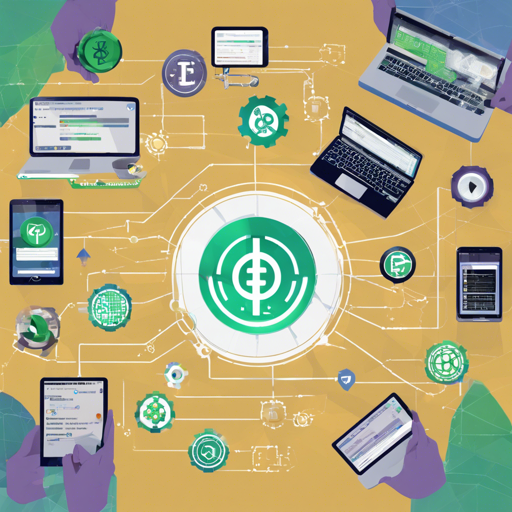Peercoin (PPC) is an innovative cryptocurrency that has paved the way for energy-efficient decentralized finance through its unique proof-of-stake and proof-of-work minting system. If you’re excited about development within the Peercoin ecosystem and want to contribute, you’re in the right place! This guide will walk you through the essential steps of getting involved.
Understanding the Basics of Peercoin
Before delving into development, you might want to familiarize yourself with what Peercoin is. Released as the first cryptocurrency to implement a proof-of-stake consensus mechanism, Peercoin promotes security while requiring significantly less energy compared to its predecessors like Bitcoin. For further insights, you can explore the official Peercoin website.
Key Resources for Development
- Client and Source: Visit Client Binaries and Source Code.
- Documentation: Access the Peercoin Docs for essential documentation.
- Support: Engage with the community on the Peercoin Forum, or join the Telegram Chat.
Participating in Development
Contributions are crucial for Peercoin’s progress; however, testing and code reviews can become a bottleneck. Here’s how to step in and help out:
Automated Testing
Developers are encouraged to write unit tests for their new code. You can compile and run unit tests (assuming they haven’t been disabled) using:
make checkManual Quality Assurance (QA) Testing
Large changes should come with a test plan and be assessed by someone other than the original developer. Here’s how it typically works:
- Developers work in their own forks and submit pull requests when ready.
- For simple changes, a member of the development team can pull it without issues.
- More complex updates may initiate discussions in the Peercoin Forum.
- Patch acceptance depends on community consensus; thus, developers often must revise and resubmit their work.
Understanding Branches in Peercoin Development
It’s vital to understand the various branches in the Peercoin repository:
- develop: All pull requests should merge here; it’s unstable and could break various systems.
- master: Updated by group members with tested code from the develop branch; functional but experimental.
- release-*: Represents official releases. For instance, release-0.6 is identified by its major and minor version number.
Troubleshooting
If you encounter issues during your contribution journey, here are a few troubleshooting tips:
- Ensure you’re running tests in a clean development environment.
- Review the documentation for updates or changes related to your issue.
- Engage with the community through the Peercoin Forum for assistance.
- As a precaution, double-check your code against the contribution guidelines.
For more insights, updates, or to collaborate on AI development projects, stay connected with fxis.ai.
Final Thoughts
At fxis.ai, we believe that such advancements are crucial for the future of AI, as they enable more comprehensive and effective solutions. Our team is continually exploring new methodologies to push the envelope in artificial intelligence, ensuring that our clients benefit from the latest technological innovations.
Embrace the spirit of collaboration and innovation in the Peercoin community, and let’s build a more robust decentralized future together!

